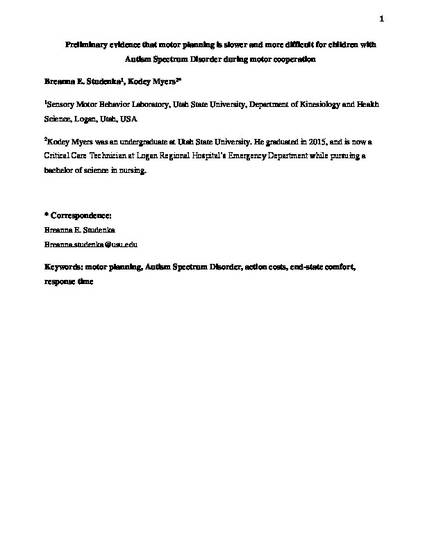
Article
Preliminary evidence that motor planning is slower and more difficult for children with Autism Spectrum Disorder during motor cooperation
Motor Control
(2020)
Abstract
Children with ASD exhibit impairment in helping someone else with a motor action, which may arise from impairment in selecting and preparing motor responses. Five children with ASD and five typically developing children performed a cooperative motor planning task that required them to reach for, lift, and hand an object (hammer or stick) to a researcher. Response, movement, and grasp time were measured. Children with ASD grasped the object longer on trials where they helped, indicating that the action was planned in sequence versus as a whole (i.e., prior to the onset of movement). The hammer object elicited a quicker response than the stick, suggesting facilitation of planning by tools with inherent action properties. Lastly, increased helping of children with ASD was not mirrored by changes in response, movement or grasp time.
Keywords
- motor planning,
- autism spectrum disorder,
- reaction time
Disciplines
Publication Date
Spring May 1, 2020
DOI
https://doi.org/10.1123/mc.2019-0007
Citation Information
Breanna Studenka. "Preliminary evidence that motor planning is slower and more difficult for children with Autism Spectrum Disorder during motor cooperation" Motor Control Vol. 24 Iss. 1 (2020) p. 127 - 149 Available at: http://works.bepress.com/breanna-studenka/73/
